FAQs
We’re glad you’re here and taking the time to do your research! Phi Theta Kappa (PTK) offers a wide range of benefits that set us apart from other honor societies, and we’re excited to share those with you. This FAQ page should help answer your questions, but if you need more information or personalized support, feel free to reach out to a real person directly at victoria@ptk.org. We’re here to help!
Phi Theta Kappa (PTK) is the official honor society for two-year colleges, recognized by the American Association of Community Colleges (AACC) since 1929. Founded in 1918, PTK celebrates academic achievement and fosters personal growth, leadership, and service among community and technical college students. With nearly 1,250 chapters in 11 nations and over 4.3 million students inducted, PTK provides a transformative experience, connecting its 230,000 active members to opportunities for scholarships, leadership development, and success beyond the classroom. By offering access to exclusive resources and a supportive community, PTK empowers students to excel academically and reach their full potential.
Yes, Phi Theta Kappa is a nonprofit organization. As an honor society, it operates with a mission to recognize academic achievement and support student success in community and technical colleges. Since it is a nonprofit, its revenue from membership fees is directed back into initiatives that benefit students, such as scholarships, leadership programs, and educational resources, rather than distributing profits to shareholders or owners. This nonprofit status helps PTK focus on its core mission of student empowerment and academic excellence.
Joining Phi Theta Kappa (PTK) offers a range of benefits that can help you excel both academically and professionally. Members gain access to exclusive scholarships, leadership development programs, career preparation tools, and networking opportunities with fellow scholars and professionals. PTK also offers resources to help with college transfer, personal growth, and recognition for your academic achievements.
For a complete list of benefits, visit ptk.org/benefits.
To join, you must receive an invitation from the Phi Theta Kappa chapter at your college. The local chapter determines eligibility, and requirements can vary by chapter. Contact your college’s PTK advisor using our Advisor Search to determine if you are eligible.
*If you have been invited already and received your passcode, you can accept membership here.
- Be enrolled in an institution that has a Phi Theta Kappa chapter.
- Have completed at least 12 hours of coursework toward an associate or bachelor’s degree or at least 6 hours of coursework toward a one-year certificate.
- Generally, have a cumulative 3.5 grade point average*
*A chapter may have different eligibility standards, as long as they are in accordance with the Society’s Constitution.
Phi Theta Kappa (PTK) membership requires a one-time fee, with portions supporting activities at the chapter, regional, and international levels. On average, the cost to join is $85, though it may vary by chapter. This single payment provides lifetime access to PTK’s scholarships, leadership development programs, and other valuable resources that promote student success.
After the invitation's expiration date, you must contact the local PTK advisor to see if you are still eligible. If you are, your advisor can give you a new passcode to join.
Find your local advisor using the Advisor Search.
If students are unable to afford the PTK membership fee, colleges and their foundations sometimes offer financial support. Phi Theta Kappa also provides the Golden Opportunity Scholarship, which helps cover the international membership fee, and chapters or colleges may offer additional fee assistance. For more information, reach out to your local PTK chapter advisor using the Advisor Search tool.
The only requirement will be to maintain your GPA to the chapter's maintenance GPA standards. For questions concerning your chapter’s maintenance GPA, contact your local chapter advisor using the Advisor Search tool.
Phi Theta Kappa uses its membership fees to support a variety of programs and resources that directly benefit its members. Here are some key areas where PTK invests membership fees:
- Educational and Professional Development Resources: Members gain access to exclusive resources like Competitive Edge courses, academic support tools, and career preparation programs that enhance both their academic and professional journeys.
- Chapter Support and Recognition: Fees contribute to support services for local chapters, ensuring that they can engage students effectively through service projects, leadership opportunities, undergraduate research, and chapter growth. PTK also uses funds to recognize chapter and individual achievements through various awards.
- Scholarship Programs: A portion of membership fees helps fund PTK’s extensive scholarship programs, which provide financial support to help members transfer to four-year colleges or go directly into the workforce.
- Leadership Development: PTK offers a range of leadership training and development programs, such as PTK Leadership Development Studies and Honors Institute, designed to cultivate students' leadership skills and prepare them for future roles in their communities and careers.
- Conferences and Events: Membership fees help organize and host national and regional conferences, such as PTK Catalyst, where students engage in networking, workshops, and leadership activities that provide real-world experience and exposure to industry leaders.
- Technology and Resources: The society maintains platforms such as PTK Connect and the FAFSA Mentor which help students connect to financial aid, explore scholarships, colleges, and career pathways, and also ensures that chapters and members have access to digital tools for communication, recognition, and engagement.
These investments are made with the goal of enhancing the member experience and ensuring that students have access to tools, opportunities, and support systems that help them succeed academically and professionally.
Phi Theta Kappa members reflect the rich diversity of community college students. They include dually enrolled high school students, those completing the first two years of a four-year degree, students entering the workforce directly after graduation, adult learners making career changes, first-time college students, and international students. All students who meet the eligibility requirements are welcome in PTK, regardless of their educational or career goals.
